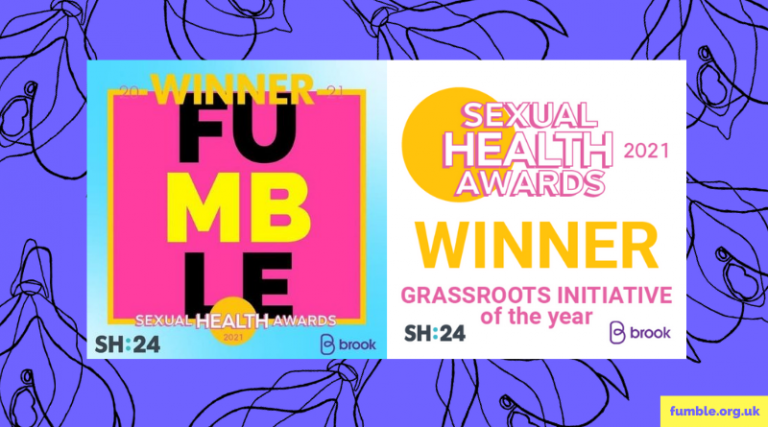Young people and the COVID-19 pandemic
In this Fumble team blog, we explore our survey findings on young people’s experiences of relationships, sexual health and mental health during COVID-19 in the UK
It’s no surprise that the COVID-19 pandemic, and its subsequent year of lockdowns and social restrictions, has had a staggering effect on the mental health and wellbeing of young people. With schools and youth centres closed, along with many other vital support provisions, young people across the country have been hit hard and are struggling with their mental health and relationships more than ever.
To understand the effects of the pandemic on the relationships, sexual health and mental health of young people of young people, Fumble conducted a survey that sought to uncover three things:
1. The main issues facing young people over the past 12 months
2. Where they are going for support
3. What they feel has been missing
Key findings
This was a survey of over 200 respondents between the ages of 11-25. The top five most mentioned issues among our young respondents relating to mental health were:
1. Motivation (81%)
2. Anxiety (70%)
3. Loneliness (66%)
4. Body image (62%)
5. Self-esteem (62%)
Other key findings
- 88% of young people have struggled with their mental health due to the pandemic
- 50% believe mental health to be the issue they’ve struggled with the most
- 72% of respondents are not comfortable talking to a parent or caregiver about issues related to sex, relationships and mental health, with 67% turning to friends for information and support instead
What we’re struggling with
With young people unable to see friends, partners and colleagues, feelings of loneliness and isolation have increased, along with issues relating to self-esteem and body image. Unable to go to school, college or university, many have been forced back into uncomfortable living situations and family dynamics, with LGBTQ+ young people citing unsafe or uncertain family/domestic settings as a main issue.
On the flip side, lockdown has caused many respondents to worry about returning to pre-pandemic levels of social interaction. Going back to school or university after lockdown or other time away from normal course of study was uncovered as another main issue, with little guidance or support available on how to navigate the drastic change back to life as normal.
Many respondents have struggled with being intimate, both remotely and safely, and have found it difficult to adapt relationships to the changing circumstances. One respondent cited lack of public health messaging as a reason for this, stating “I would have liked to have seen wider public health messaging on the importance of maintaining and adapting relationships during the pandemic, and information on how to do this – with family, friends and partners.”
With many in-person sexual health services shut, young people have also struggled to access contraceptives and protection remotely, and have found contacting sexual health services of any kind to be difficult.
Support and services that young people would normally engage with in-person, whether that’s schools, youth groups, faith groups, health centres, sports clubs and other formal and informal settings, have been unable to offer in-person support to the same capacity or at all. This has led to young people seeking online support, and remote access to information and was repeatedly highlighted as a key area where young people would like to see more provision. Many fellow youth organisations we work with have told us they are unable to translate their work online or into impactful digital formats, meaning there is a lack of relevant, high quality, peer-to-peer digital resources that respond to young people’s needs when it comes to sex, relationships and mental health.
At Fumble, we want to make sure young people have the skills and knowledge to successfully manage their sexual health, mental health, and relationships. This survey shows that our top quality, trusted, co-created digital content is needed now more than ever as young people learn to navigate the ‘new normal’ of a post-pandemic world.
Read more
Last Reviewed 19 October 2023
Image Credit: Armin Rimoldi via Pexels





